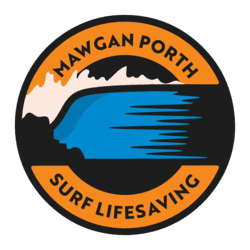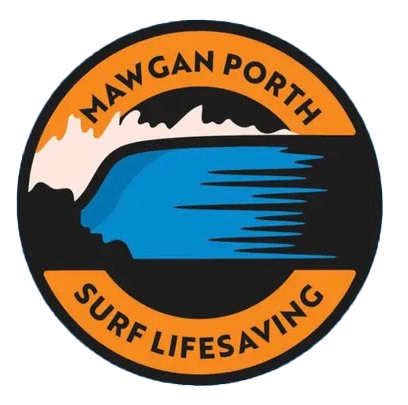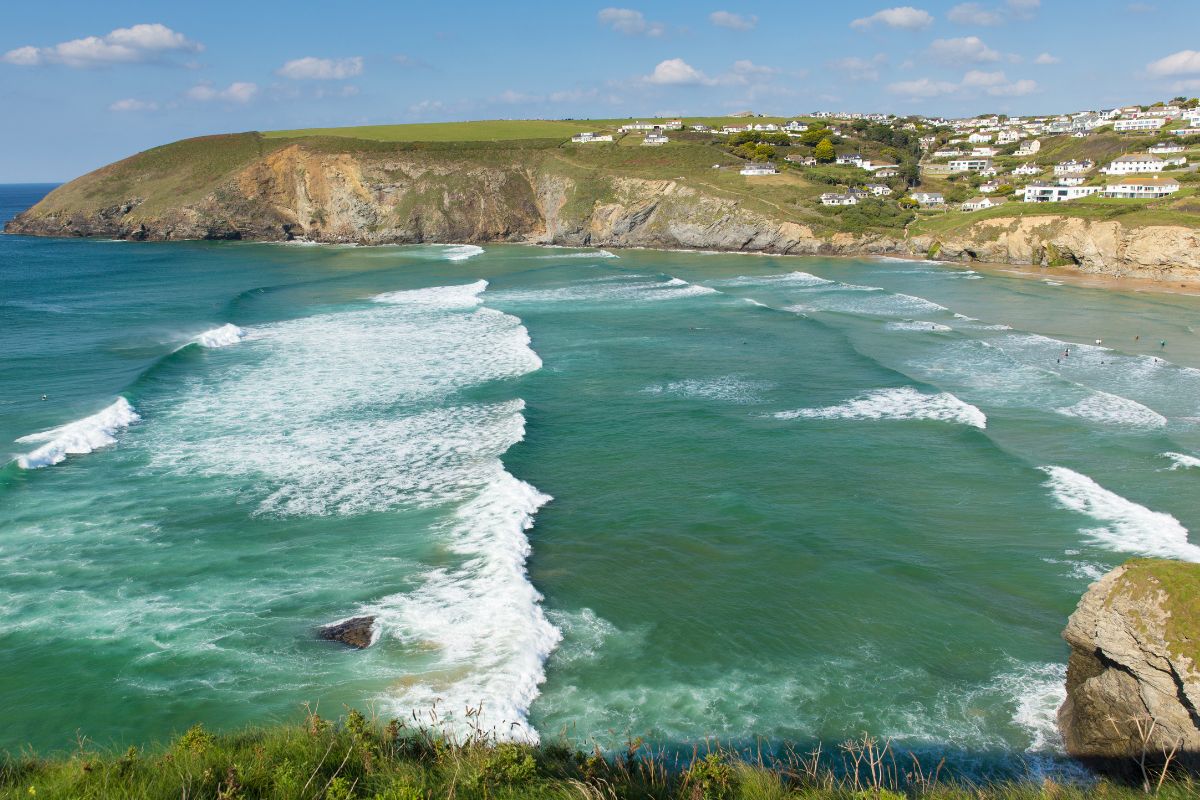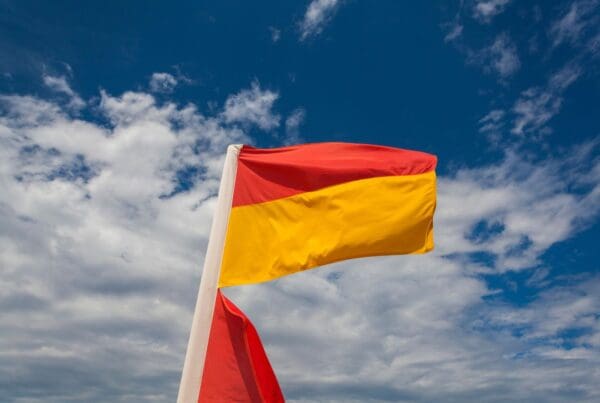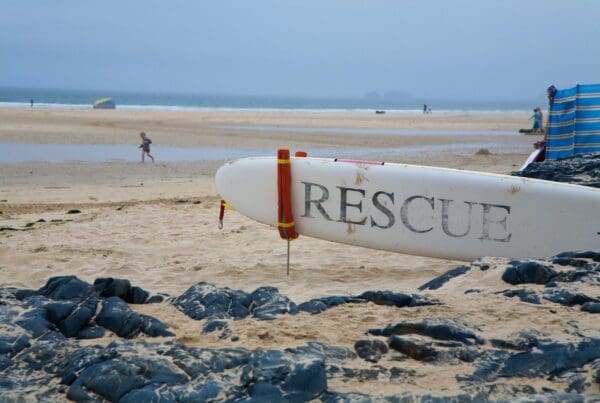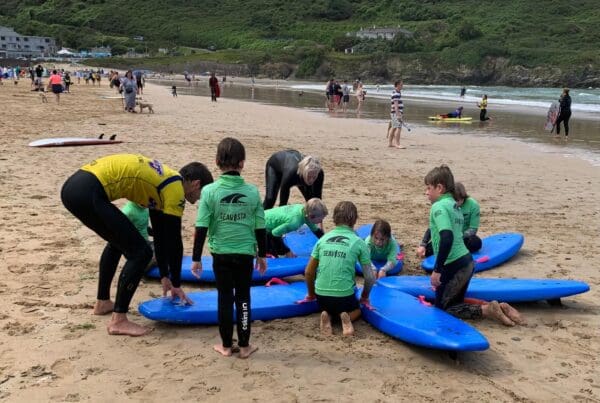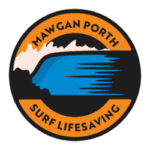Surf Life Saving has a long and fascinating history in Cornwall, with deep roots in the community and a commitment to ensuring the safety of beachgoers year-round. From humble beginnings to a widely respected movement, Cornwall’s Surf Life Saving clubs have become vital for beach safety and coastal awareness. Let’s look at how it all began and explore its evolution over the years.
Early Beginnings: Cornwall’s Relationship with the Sea
Understanding the Need for Coastal Safety
Cornwall’s dramatic coastline, renowned for its powerful surf and rugged beauty, has always drawn adventurers, surfers, and tourists. Yet with the allure of the sea came inherent risks, and the need for beach safety became evident early on. From strong currents to rapidly changing tides, Cornwall’s beaches posed challenges that required specialised knowledge and intervention.
The Inspiration from Australia
The idea of Surf Life Saving originated in Australia in the early 1900s as a response to the increasing popularity of beachgoing and water sports. By the 1950s, as surfing and swimming culture grew globally, Cornwall adopted similar practices, inspired by Australia’s Surf Life Saving Clubs (SLSCs) and their emphasis on training lifeguards to rescue and prevent coastal emergencies.
The Formation of Cornwall’s First Surf Life Saving Club
Establishing a Community-Based Approach
In 1953, the first Surf Life Saving Club in the UK was established at Bude in Cornwall, marking the beginning of an organised effort to protect beachgoers. This community-centred approach encouraged locals and volunteers to take an active role in beach safety, combining rigorous training with a dedication to service.
Expanding Clubs Along the Coast
Following the success of the Bude club, additional Surf Life Saving Clubs began forming along Cornwall’s coastline, including popular locations like St. Agnes, Porthtowan, and Polzeath. These clubs grew rapidly as more people saw the importance of surf life saving, especially as Cornwall gained recognition as a premier surfing destination. Mawgan Porth Surf Life Saving Club was created just last year (2023) and already has 85 members and has great plans for growth and opportunity over the next few years.
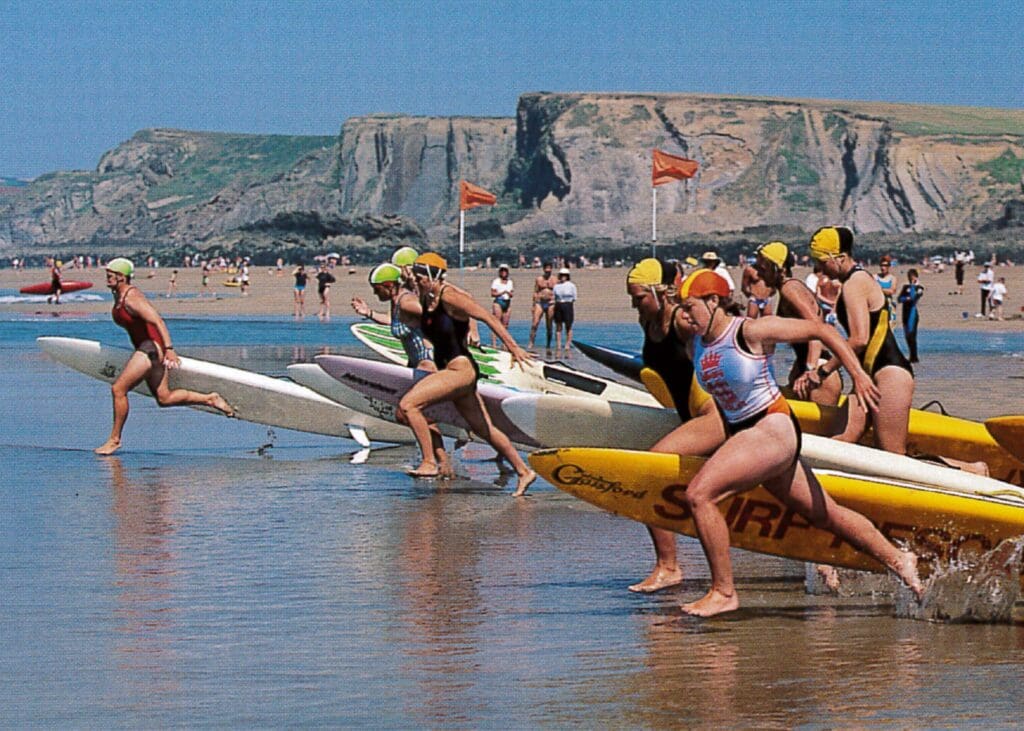
Bude Surf Life Saving1953 (Cornwall Forever)
Training and Techniques Through the Years
Early Training Methods
In the early years, training focused primarily on basic rescue techniques and the use of rudimentary equipment, such as rope-based rescues and basic surfboards. Volunteers were taught to spot dangerous surf conditions, assess swimmer safety, and conduct rescues as safely as possible given the equipment of the time.
Modernisation and Advanced Lifesaving Techniques
With advancements in technology and equipment, training has evolved significantly. Today, Cornwall’s Surf Life Saving Clubs use advanced rescue boards, jet skis, and other specialised gear. Lifesavers are trained in first aid, CPR, and advanced rescue techniques, ensuring they are prepared for all types of beach and sea conditions.
The Role of the Surf Life Saving Association in Cornwall
National Recognition and Support
In 1965, Surf Life Saving GB was established as the governing body for surf life saving clubs across the UK. Cornwall’s clubs quickly aligned with this organisation, benefiting from standardised training, national support, and funding. This partnership helped increase awareness, allowing the movement to expand further and enhancing the reach of safety measures.
Competitions and Community Engagement
Beyond beach patrols, Surf Life Saving in Cornwall has evolved into a celebrated sport, with annual competitions that test the skills of lifeguards and draw attention to the cause. These events bring together the community, showcasing the skill, bravery, and dedication of Cornwall’s lifesavers and inspiring new generations to join.
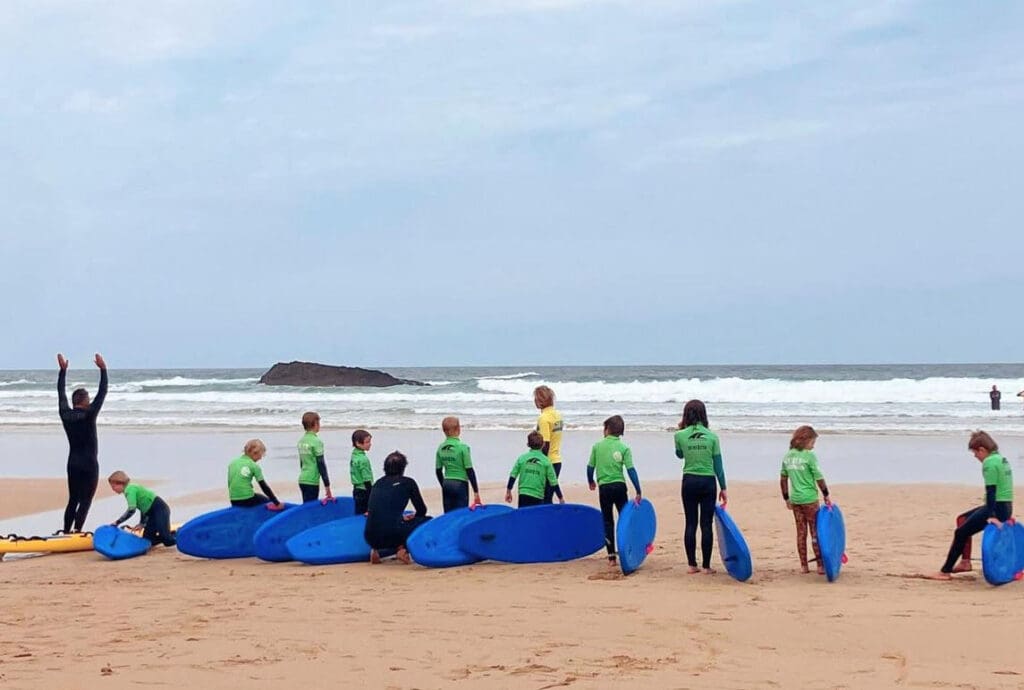
The Impact of Cornwall’s Surf Life Saving Clubs Today
A Legacy of Coastal Safety
Cornwall’s Surf Life Saving Clubs have become essential institutions in beach safety, credited with saving countless lives and educating the public on responsible coastal behavior. From hosting beach safety programs for schools to offering year-round volunteer lifeguard patrols, these clubs remain committed to keeping Cornwall’s coast safe.
Inspiring Future Generations
Today, Cornwall’s Surf Life Saving Clubs continue to attract new volunteers and inspire future generations to respect and protect the sea. With Junior Lifeguard programs, local competitions, and awareness campaigns, Cornwall is ensuring that the legacy of surf life saving will endure for years to come.
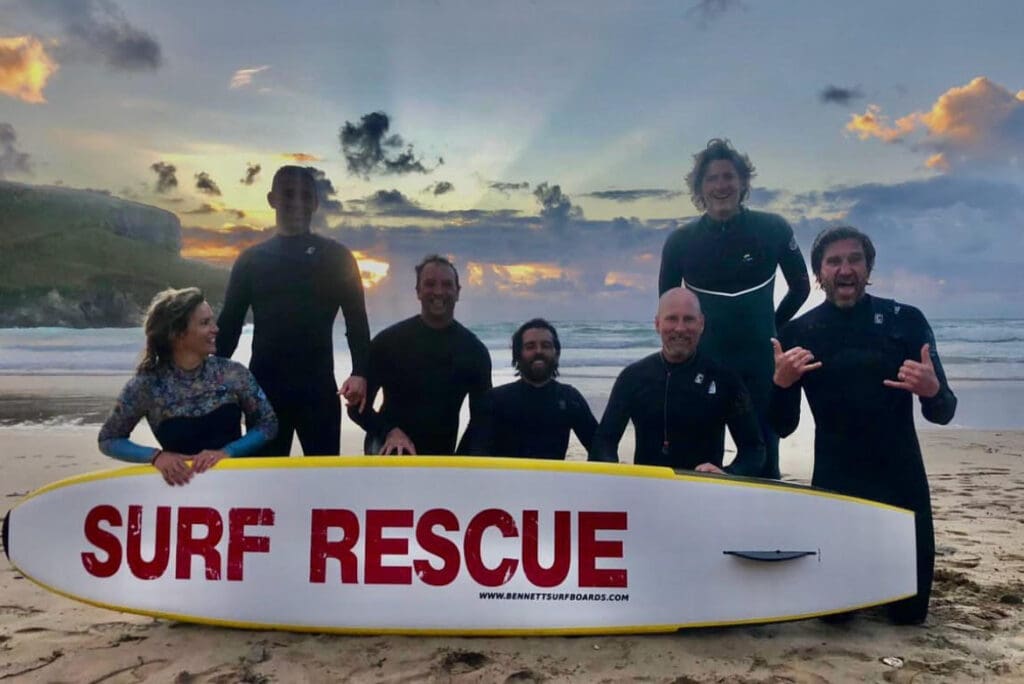
The history of Surf Life Saving in Cornwall is a testament to the strength of community and the dedication of countless individuals who work tirelessly to protect the region’s beaches. As we look to the future, Cornwall’s Surf Life Saving Clubs remain an essential part of beach culture, upholding a proud tradition of coastal guardianship.
Supporting your dedicated surf life saving club at Mawgan Porth is vital so that everyone can enjoy our beautiful beach safely, promote coastal awareness, and equip local volunteers with the training and resources needed to save lives.
Whether you’re a seasoned surfer, a passionate community member, or a concerned parent, there’s a place for you at Mawgan Porth Surf Lifesaving Club. Join us as a member, volunteer, or supporter – every contribution helps us ensure safer shores and brighter futures.
